Rural fire departments say outdoor tourism straining resources
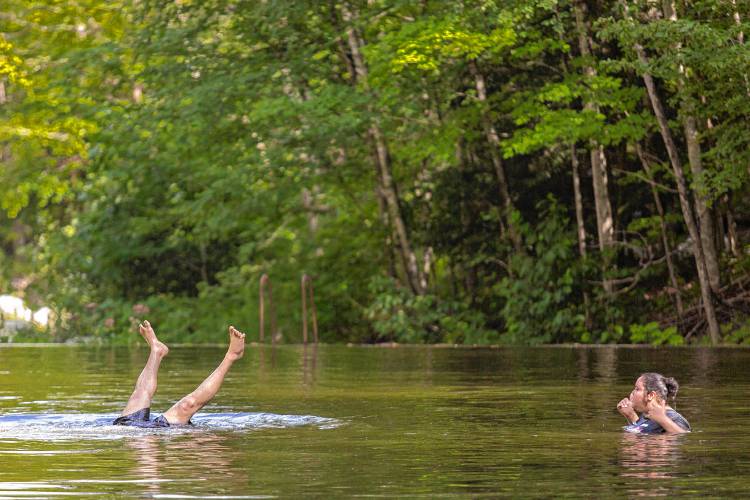
A swimmer does a hand stand in the Cold River at the Cold River Pool/Beach Area at the Mohawk State Forest in Charlemont while another swimmer looks on. FILE PHOTO
| Published: 03-03-2025 4:42 PM |
SHELBURNE — More people and more money. That’s what first responders say they need to keep up with outdoor recreation tourism, which is straining their departments.
The Woodlands Partnership of Northwest Massachusetts is undergoing a study of public safety services across a 21-town region covering western Franklin County and northern Berkshire County. The study, in collaboration with the Edward J. Collins, Jr. Center for Public Management at the University of Massachusetts Boston, seeks to answer how tourism impacts public safety services in rural towns with limited budgets.
As part of the study, the Woodlands Partnership held three public input sessions, the last of which was Feb. 27 at the Shelburne Fire Department on Little Mohawk Road where Buckland and Shelburne firefighters, dispatchers and members of community shared their thoughts on the challenges of today’s rural departments, including responding to the emergencies of outdoor recreational tourists, without the budgets or staff to do so.
“Taking care of these other people that come here to recreate isn’t necessarily our job, but it ends up being our responsibility,” said Woodlands Partnership board member Russ Richardson.
It’s a balancing act, said Shelburne Emergency Management Director Tom Williams. Tourists bring money to businesses in the region, but tourists can have emergencies just like anyone else and drain public safety resources.
“Emergency services for people that come into our communities do cost us money,” said state Rep. Natalie Blais (D-Deerfield).
Kate Conlin, a Woodlands Partnership coordinator, said the region is a huge draw for outdoor recreation tourism. Across the 21 towns 81% of land is covered by forest, and large sections of that are held in state forest or conservation trusts. The state does not pay taxes on these properties, instead signing payment in lieu of taxes (PILOT) agreements which are calculated based on the property value. So while property on Nantucket is reimbursed at an average rate of $3,210 per acre, in Franklin County the average rate is $32 per acre.
Attendees added that updated, stricter safety regulations requiring equipment to be replaced more frequently is draining their department’s budget. Buckland Firefighter Adam Griffin said that this year his department was forced to buy $30,000 worth of new hoses, despite the fact that the old hoses were still perfectly functional, as equipment in rural communities do not get used nearly as often as it would in big cities.
Article continues after...
Yesterday's Most Read Articles
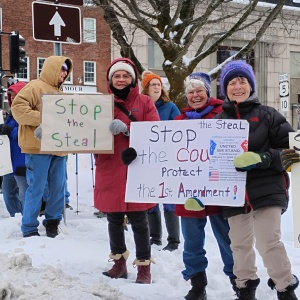 Local ‘Hands Off!’ standouts planned as part of national effort
Local ‘Hands Off!’ standouts planned as part of national effort
 Incandescent Brewing now open in Bernardston
Incandescent Brewing now open in Bernardston
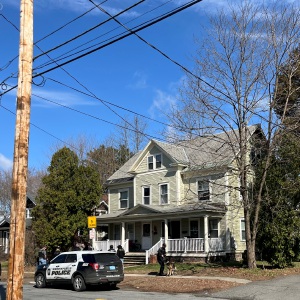 Two arrested on drug trafficking charges in Greenfield
Two arrested on drug trafficking charges in Greenfield
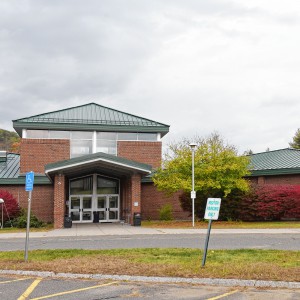 Berkshire DA says no crime occurred in student-officer relationship at Mohawk Trail
Berkshire DA says no crime occurred in student-officer relationship at Mohawk Trail
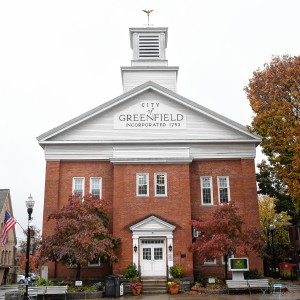 Proposed ordinance would make Greenfield a ‘sanctuary city’ for trans, gender-diverse people
Proposed ordinance would make Greenfield a ‘sanctuary city’ for trans, gender-diverse people
 Sounds Local: A legend pays tribute to an icon: Seven-time Grammy-nominated Joan Osborne brings Bob Dylan repertoire to Shea Theater
Sounds Local: A legend pays tribute to an icon: Seven-time Grammy-nominated Joan Osborne brings Bob Dylan repertoire to Shea Theater
“There was almost $30,000 for just hose that had to be found very quickly and we had to bring it out of our own budgets, but that was something our chief didn’t plan on,” Griffin said. “Our chief spends half his time just writing grants.”
Williams said finding funding for unexpected equipment purchases or repairing roads and other infrastructure after big storms is a challenge.
“Getting emergency funding is like pulling teeth,” Williams said.
In addition to difficulties finding money, attendees said they had difficulty finding people. Most of the fire departments across western Massachusetts rely on volunteers. In past decades there were plenty willing to sign up but that is no longer the case.
Richardson suggested it was a lack of civic duty in the younger generations that led to the decrease in volunteers, however other attendees said there is simple less people around than in past decades.
Williams said that in the past people worked in the town they live in, so if there was an emergency it was easy to get to. But now many people commute to other towns for work, so if there is a fire in their hometown they are just not around to respond. Additionally, hours of required training and certifications that volunteers may have to pay for out of pocket can prevent some from joining.
Asked by Conlin how the Woodlands Partnership or the state could help the departments, attendees said there are a few things that could be done to make their lives easier.
Griffin suggested that the agencies that manage state parks, conservation areas and other recreation land be required to clear paths to allow easier access for emergency personnel, and that the towns consider developing a regional training program and curriculum, or hire a regional training manager to coordinate training efforts and hopefully get more recruits.
Williams said state agencies that own the land, such as the Department of Conservation and Recreation and MassWildlife, could allocate funds to the towns for equipment and services needed on the property during emergencies.
Blais noted that town officials in Charlemont are exploring creating a recreation tax to bring in funds from the businesses that invite tourists to town to be put towards new equipment and staffing for emergency services. She said she is working with the town and other state legislators to bring the tax to fruition.
The Woodlands Partnership is looking for more input from first responders and other community members. To learn more about the study and fill out the survey visit woodlandspartnership.org
Reach Madison Schofield at 413-930-4579 or mschofield@recorder.com






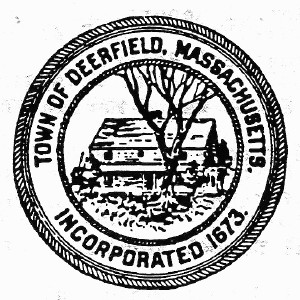 New panel to review senior housing proposals in Deerfield
New panel to review senior housing proposals in Deerfield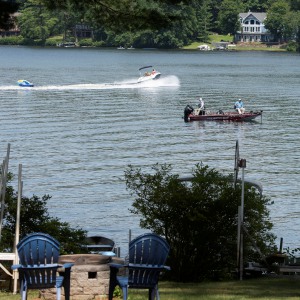 Shutesbury reviewing how to improve safety on Lake Wyola in wake of accident last summer
Shutesbury reviewing how to improve safety on Lake Wyola in wake of accident last summer Local libraries react to state funding cuts, federal administrative leave
Local libraries react to state funding cuts, federal administrative leave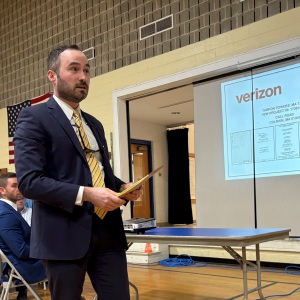 Colrain zoning board approves variance for Call Road cell tower
Colrain zoning board approves variance for Call Road cell tower
